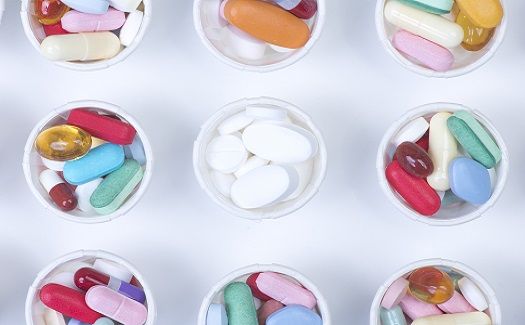Proper Nutrition Encourages HIV, Diabetes Treatment Adherence
Providing healthy meals to low-income people can help medication adherence.

When patients eat nutritious foods, they tend to follow their medication schedules better—at least that was the outcome of a study from the University of California, San Francisco (UCSF).
Managing a disease, like infection with the human immunodeficiency virus (HIV) or diabetes, requires daily attention and medication. UCSF partnered with the Project Open Hand to evaluate treatment adherence when patients were provided with proper nutrition.
For six months, 52 low-income patients were given meals and snacks complete with 100% daily energy requirements. Twenty-three patients had HIV, 24 had type 2 diabetes, and seven had both conditions. Around 70% of participants were ages 50 to 64 and two-thirds were male. The majority of participants were receiving federal disability payments—Supplemental Security Income (SSI) and/or Social Security Disability Insurance (SSDI)—and about 20% were receiving food stamps.
“We saw significant improvements in food security and in outcomes related to all three mechanisms through which we posited food insecurity may affect HIV and diabetes health—nutritional, mental health, and behavioral,” co-first author, Kartika Palar, PhD, an assistant professor of medicine at UCSF, said in a news release.
Meals were based off of the Mediterranean diet, which is known for being high in healthy fats, lean proteins, fruits, and vegetables. As advised by the American Diabetes Association and American Heart Association, the healthy meals were low in refined sugars and saturated fats. An average day consisted of 1,800 to 2,000 calories for people with HIV and 1,800 calories for people with diabetes. Participants were to pick up their food twice a week, which ultimately was adhered to a median of 93% of the time.
Participants who had “very low food security” dropped from 59.6% to 11.5%. They also experienced increased fruit and vegetable consumption and decreased fat consumption. For people with type 2 diabetes, their frequency of sugar intake decreased.
When the data were translated to healthcare implications, the researchers observed an antiretroviral therapy (ART) adherence (of at least 95%) increase from 47% to 70% after six months. People with type 2 diabetes had improved distress and views on disease self-management.
Mental health also improved among the patients. “For example, we saw dramatic improvements in depression, the distress of having diabetes, diabetes self-management, trading-off between food and healthcare, and HIV medication adherence,” Palar continued.
The program actually came out to be quite cost effective. Food for each participant cost just $6.58 a day, or $1,184 for six months.
“This study highlights the vital role that community-based food support organizations can play in supporting health and well-being of chronically ill populations who struggle to afford basic needs,” said senior author, Sheri Weiser, MD, associate professor of medicine at UCSF.
A similar second six-month study is already in the works. The researchers plan to test the program out in 200 people with HIV living in California counties.
The study, “Comprehensive and Medically Appropriate Food Support Is Associated with Improved HIV and Diabetes Health,” was published in the Journal of Urban Health. The news release was provided by UCSF.
Related Coverage:
How to Tell a Child He or She Has HIV
Aging Getting Tougher for People with HIV
Diabetes Lifestyle Interventions Make People Healthier, Not Smarter